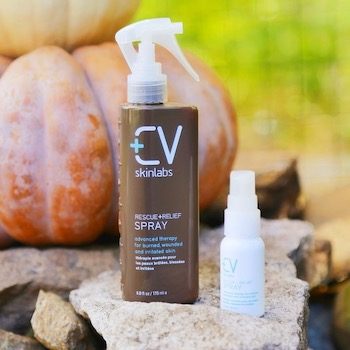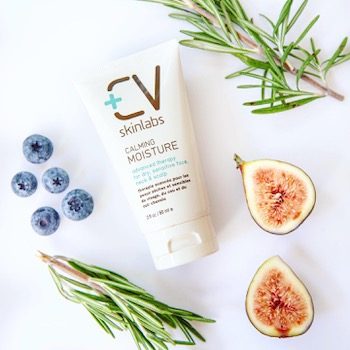
As we come to the end of the year, you may ask yourself, “Is my skincare routine working?”
It’s common at this time of year to do some reflecting, to see what’s working in our lives and what needs improvement.
We recommend you do this for your skincare routine too. After all, you want to start the new year with your best routine possible so that your skin looks healthy and glowing.
To do that, you first must know what’s working with the routine you already have, and what’s not. Answer these few questions to find out.
Is My Skincare Routine Working? Here’s a Quiz
1. Are you suffering from breakouts?
No matter what you’re doing, if you’re suffering from breakouts, your skincare routine isn’t working right.
Unfortunately, the solution may not be simple. It all depends on what’s causing your breakouts in the first place. It could be stress, mask-wearing, hormonal changes, a lack of vitamin D, poor diet, or using the wrong skincare products. (Check out our article, “Adult Acne Increasing—How to Get Control of Your Breakouts.”)
To get started, here are a few things you can do:
- Did you just start using a new product? If so—and your breakouts started soon after—ditch the product. It’s likely causing you problems. One exception: Your new product contains retinol. In that case, give your skin a few weeks to adjust. The breakouts may subside.
- Are you being too harsh? If you’re using harsh anti-acne products, scrubbing harshly when cleansing, or drying out your skin too much, it will react by over-producing oil.
- Is your moisturizer, foundation, or other products clogging your pores? Make sure any products you use are non-comedogenic, meaning they won’t clog pores. Some with silicone ingredients may also negatively affect your skin.
- Try our CV Skinlabs products. They help calm irritation and inflammation while nourishing the skin without clogging pores.
 2. Is My Skincare Routine Working: Is your skin rough and dull?
2. Is My Skincare Routine Working: Is your skin rough and dull?
If you answer “yes” to this question, your skincare routine isn’t working for you. Somewhere, you’re missing the moisture you need.
Keep in mind that this may not be a problem with your products, but more a problem of when or how often you’re applying them.
Here are a few things you can try:
- Make sure your cleanser is gentle and isn’t drying out your skin.
- Use a calming, hydrating toner like our Rescue + Relief Spray.
- Exfoliate your skin 1-3 times a week to get the dead skin cells out of the way.
- Moisturize with a quality product immediately after cleansing and toning. Applying moisturizer to damp skin is the best way to keep skin soft and smooth.
3. Does your skin feel itchy or irritated?
Healthy, happy skin feels calm, comfortable, and smooth. If your skin feels irritated and itchy, or if it stings, that’s a sign that something is wrong.
Your skin acts as a sensitive detector. It knows when allergens are around and can show reactions to pollen, certain foods, medications, and ingredients in skincare products.
If you’re dealing with uncomfortable skin, try these tips:
- Stop using all extra products except your cleanser, toner, and moisturizer. Give your skin time to calm down. (If it’s still reacting, try a different cleanser, toner, and/or moisturizer.)
- Then add back in your other products one at a time and see how your skin responds.
- Watch out for triggers in your clothing detergents and household cleaners as well.
- Check any medications you’re taking to see if they may cause skin irritation as a side effect. If so, talk to your doctor about your options.
4. Is My Skincare Routine Working: Is your skin uniform in color?
We all experience some skin damage as we age. You may have areas of hyperpigmentation, age spots, or blotching.
If your skin care is working, these areas will be fading so that your skin looks more uniform. If you still have dark areas, it’s time to make some changes.
- Make sure you’re protecting your skin from the sun. Particularly if you’re using a skin-lightening product, you have an even greater risk of sun damage, which will worsen your hyperpigmentation.
- Look for lightening products that include vitamin C, retinol, kojic acid, niacinamide, azelaic acid, mandelic acid, and arbutin. Even aloe vera can help slightly lighten and brighten.
- Exfoliate regularly.
5. Is your skincare routine taking too long?
Over the past several years, manufacturers have convinced us that we need more and more products. Soon, we were all taking way too long to get through our skincare routines because they consisted of way too many steps.
If you use too many products, you can run into problems. Some ingredients in certain products may cancel out the effects of ingredients in other products. You have an increased risk of clogging your pores and overwhelming your skin so that it reacts (in breakouts and redness).
Today’s trends are all about minimizing the products you’re using both for the benefit of your skin and the planet. If your routine is taking longer than you like and your skin isn’t happy, try these tips:
- Go back to the basics: cleanse, tone, and moisturize.
- Add in one product based on what your skin needs: an exfoliant, anti-aging booster, a lightening product for hyperpigmentation, or another.
- Look for products that multi-task like our Rescue + Relief Spray, which works to tame skin irritations during the day. You can also use it as a daily toner or aftershave.
 6. Is My Skincare Routine Working: Is your skin red or do you have red bumps?
6. Is My Skincare Routine Working: Is your skin red or do you have red bumps?
Redness and flushing may be signs of rosacea, a common condition that causes red bumps and visible blood vessels to flare up on your face.
Or it could be that you’re suffering from an allergic rash.
If this sounds like you, your current routine isn’t working. Try these tips (and read our article on Rosacea):
- Wash gently with a gentle cleanser.
- Moisturize every day with our Calming Moisture and Body Repair Lotion. Both help tame inflammation and fade redness.
- Choose non-toxic cosmetics that won’t make your skin worse.
- Use sunscreen every day.
- Get enough omega-3 fatty acids in your diet, as they help to reduce inflammation.
7. Are you noticing any improvement?
Maybe everything is “okay” with your skincare routine. Nothing bad is going on. You’re not experiencing breakouts or redness or flakiness.
But at the same time, nothing’s getting better either. The things you hoped your products would improve aren’t changing. Maybe you’re noticing more signs of aging, your fine lines and wrinkles are still noticeable, or your redness is still there.
It’s tempting to give up at this point, but we urge you to hang in there. Sometimes, it just takes longer to see real results—a few months rather than a few weeks. Or sometimes, it could be that you need to try something else.
- If you just started using something new, as long as it’s not harming your skin, give it at least 4 weeks before you try something else.
- Carefully research your products to make sure they include the ingredients you need to address your particular skincare concerns. Look to find them listed early on the ingredient list. Some companies throw in just a little to satisfy the market. If that’s the case, they will be listed later.
- Keep in mind that just because it’s popular doesn’t mean it will work. Everyone is different. What matters is whether it works for you.
- If one brand doesn’t work, try another. Skin care companies vary in how they formulate their products. One vitamin C serum may not work, for instance, while another may help to fade hyperpigmentation.
How can you tell when your skincare routine isn’t working?

